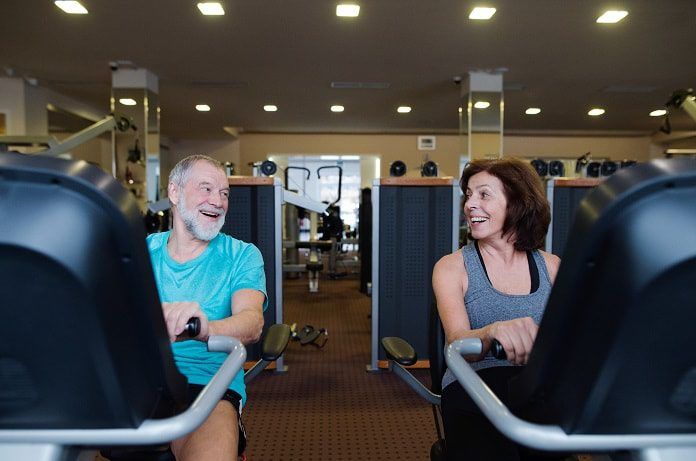A recent study found that seniors living in care facilities who started to exercise three times a week saw significant improvements in their quality of life, particularly in regards to their mental health and social functioning.
As we age, our bodies go through changes that tend to limit our abilities and movements, which for many seniors results in a decrease in total physical activity. In fact, the evidence indicates that individuals aged 55 years and older are the least likely to participate in moderate or vigorous activities. However, being sedentary can lead to a host of problems, including the development of cardiovascular disease and hypertension. This lack of exercise and increased susceptibility to disease can have a negative impact on a person’s general health and lower their overall quality of life. This study looks to further our understanding of the role of exercise and its impact on quality of life for seniors, specifically those living in long-term care facilities.
A recent study published in The Pan African Medical Journal recruited 100 seniors from five care facilities located within a 30km range from the Durban district in South Africa. To be selected for this study, participants had to be over the age of 60 and have passed a physical examination. Following selection, they all completed a baseline evaluation of the various quality of life measures, including social functioning, mental health, and vitality. Individuals were divided into two groups; the first group was required to exercise two times a week for the duration of the study, a total of 12 weeks. Seniors in the second group were required to exercise three times a week, again for a total of 12 weeks. At the end of the study, the seniors were re-evaluated for social functioning, mental health, and vitality to determine the effects of exercise on quality of life.
The findings of this study indicate clear benefits of exercise for seniors living in care facilities. Individuals that exercised two times a week saw a significant improvement in their social functioning, mental health, as well as improvements in general health. Individuals that exercised three times a week also saw a significant improvement in their social functioning and interestingly, an even greater improvement to their mental health than the individuals that exercised only two times a week. This suggests that there may be a positive correlation between the number of days spent exercising and the state of an individual’s mental health. Recent research has also suggested that exercise helps keep the brain functioning well in older individuals. Furthermore, researchers saw a significant improvement in terms of vitality for seniors that exercised three days a week. All of these results taken together indicate how important exercise is for increasing the quality of life for seniors living in long-term care facilities. However, more research will be needed to determine any long-term effects, as well as the effects of exercise intensity and duration on the quality of life.
Written by Sonia Parmar, BSc
Reference
The Pan African Medical Journal. 2017;26:35. doi:10.11604/pamj.2017.26.35.10518



